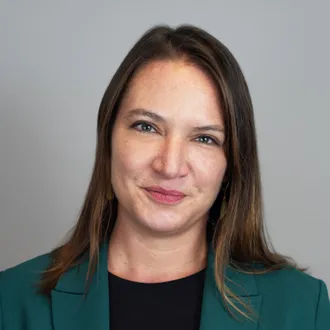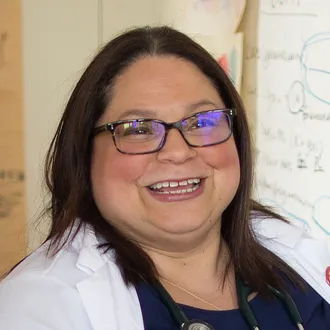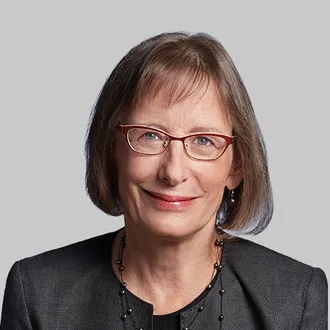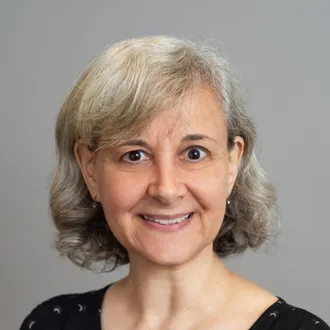Course 1 of 6
Understand how Medicare, Medicaid, and private payers share responsibility for health care costs, and the financial impact on patients and families.
This course is focused on the population of Medicare beneficiaries and the benefits they receive—and do not receive—from this federal program. Learners will review the growth trend in Medicare Advantage (MA) and weigh the advantages and disadvantages that privatization of Medicare has introduced, both for beneficiaries and for providers.
Learning outcomes for this course include:
Only CAPC members who are logged in can earn the following free Continuing Education Credits:
To take this course, log in. Or, check here to see if your organization is a member.
LoginTake the course
Take the post-test
Complete evaluation
Download your certificate
Summary of differences between Medicare and Medicare Advantage.
Course References
Recommendations to improve data transparency and quality measurement in Medicare Advantage (MA).
Kaiser Family Foundation "textbook" on health policy topics.

Chief Executive Officer, Center to Advance Palliative Care

Professor of Geriatrics and Palliative Medicine, Medical Education and Internal Medicine
Gerald and …

Founder, Director Emerita and Strategic Medical Advisor, Center to Advance Palliative Care

Chief Health Care Transformation Officer
Physicians
Medical Society of the State of New York
This activity has been planned and implemented in accordance with the Accreditation Requirements and Policies of the Accreditation Council for Continuing Medical Education (ACCME) through the joint providership of the Medical Society of the State of New York (MSSNY) and Center to Advance Palliative Care (CAPC). MSSNY is accredited by the Accreditation Council for Continuing Medical Education (ACCME) to provide continuing medical education for physicians.
The Medical Society of the State of New York designates this enduring material for a maximum of 1.50 AMA PRA Category 1 Credits™. Physicians should claim only the credit commensurate with the extent of their participation in the activity.
Successful completion of this CME activity, which includes participation in the evaluation component, enables the participant to earn up to 1.50 Medical Knowledge MOC points in the American Board of Internal Medicine's (ABIM) Maintenance of Certification (MOC) program. Participants will earn MOC points equivalent to the amount of CME credits claimed for the activity. It is the CME activity provider's responsibility to submit participant completion information to ACCME for the purpose of granting ABIM MOC credit.
As an ACCME-accredited provider, MSSNY is required to identify and mitigate relevant financial relationships of all individuals in control of CME content.
Financial relationships are relevant if the following three conditions are met for the prospective person who will control content of the education:
✓ A financial relationship, in any amount, exists between the person in control of content and an ineligible company.
✓ The financial relationship existed during the past 24 months.
✓ The content of the education is related to the products of an ineligible company with whom the person has a financial relationship.
None of the individuals in control of content have relevant financial relationships to disclose.
Released: 12/10/2025; Valid for credit through 10/15/2028
Estimated Time of Completion: 90 Minutes
Physician Assistants
The American Academy of Physician Assistants (AAPA) accepts credit from organizations accredited by the ACCME. The Medical Society of the State of New York designates this enduring material with 1.50 AMA PRA Category 1 Credit™ as specified, which can be applied to the continuing education of Physician Assistants. Physician Assistants should claim only the credit commensurate with the extent of their participation in the activity.
Nurses
This nursing continuing professional development activity was approved by Connecticut Nurses’ Association, an accredited approver by the American Nurses Credentialing Center’s Commission on Accreditation.
Minutes: 105 minutes or 1.75 contact hours
Released: 12/10/2025; Valid for credit through 12/10/2027
Social Workers
Center to Advance Palliative Care SW CPE #0257 is recognized by the New York State Education Department's State Board for Social Work as an approved provider of continuing education for licensed social workers effective 12/10/2025- 7/31/2027. This program has been approved for 1.50 continuing education contact hours.
Certified Case Managers
This program is approved by The Commission for Case Manager Certification (Approval #250003829) to provide 1.50 continuing education credits to CCM® board certified case managers.
Released: 12/10/2025; Valid for credit through 12/10/2026
Verification of Attendance (VOA)
All users that are not eligible for continuing education will receive a Verification of Attendance certificate upon completion of the course.
Course Media Instructions and Additional Information
Software Requirements: CAPC’s online curriculum, tools and technical assistance are designed to be fully compatible through multiple platforms: computer, smartphone (iOS or Android) or tablet running the following web browsers: Google Chrome, Mozilla Firefox, Safari, and Microsoft Edge.
Content: Each course is comprised of interactive learning components (articles, tools, or supporting materials), video and audio. The learner will be expected to complete various interactive processes such as matching, simulated clinical decision-making, fill in the blanks, and highlighting content.
Target Audience: Each program is developed for chaplains/spiritual counselors, nurses, physicians, physician assistants, social workers, case managers, palliative care program leaders, and healthcare leaders (hospital, health system and community care).
How to Achieve Contact Hours: To successfully earn credit, participants must complete the entire course, receive a minimum score of 80% on the post-test (within 3 attempts), and complete the course evaluation. A printable certificate of completion or a continuing award document specific to the discipline will be awarded. If the participant does not successfully score an 80% or better within 3 attempts, they must re-take the course from beginning to end.
Faculty Disclosures and Financial Relationships: It is the policy of CAPC to ensure objectivity, balance, independence, transparency, and scientific rigor in all CE, CNE and CME educational activities per the highest standards of ANCC and ACGME guidelines. For all courses, Faculty/Presenters/Authors/Content Reviewers/Planning Committee Members complete forms to disclose their relevant financial relationships. No relevant financial relationships were identified for any individuals with the ability to control content of the activity.
Activity Description/Statement of Needs: CAPC’s online curriculum provides training in two critical areas. Technical assistance courses are designed to help palliative care program leaders address key challenges such as implementing palliative care in community health care settings. Clinical coursework provides fundamental training in pain and symptom management, communication, and other key skills needed to work with patients with serious illness.
Disclaimers: The opinions expressed in the courses are those of the authors and do not necessarily represent the views of the sponsor, the educational partner, or the supporter. Please review complete prescribing information of specific drugs or combination of drugs, including indications, contraindications, warnings, and adverse effects before administering pharmacologic therapy to patients.
Activities do not contain information on commercial products/devices that are unlabeled for use or investigational uses of products not yet approved.
Copyright Information: All rights reserved by the Center to Advance Palliative Care (CAPC). No materials may be used or reproduced in any manner whatsoever without written permission except in the case of brief quotations embodied in articles or reviews.
Diane E. Meier, MD, FACP, FAAHPM. Founder, Director Emerita and Strategic Medical Advisor, Center to Advance Palliative Care Co-director, Patty and Jay Baker National Palliative Care Center Professor, Department of Geriatrics and Palliative Medicine Catherine Gaisman Professor of Medical Ethics, Icahn School of Medicine at Mount Sinai.
Allison Silvers, MBA. Director, Health Care Transformation, Center to Advance Palliative Care.
Stacie Sinclair, MPP. Associate Director, Policy and Care Transformation, Center to Advance Palliative Care.
Karen Bullock, PhD, LICSW, APHSW-C. Ahearn Endowed Professor, Boston College School of Social Work.
Brittany Chambers, MPH, MCHES. Director, Health Equity and Special Initiatives, Center to Advance Palliative Care.
Philip Solomon, MD. Director, Geriatrics Education and Clinical Integration; Program Director, Geriatrics Fellowship; Division of Geriatrics and Palliative Medicine, Associate Professor, Zucker School of Medicine at Hofstra/Northwell.
Donna Stevens, MHA. Consultant, Center to Advance Palliative Care.
Constance Dahlin, MSN, ANP-BC, ACHPN, FPCN, FAAN. Consultant to CAPC, Nurse Planner, Center to Advance Palliative Care
Sherika Newman, DO. CAPC Peer Reviewer, Founder, Doctor in the Family, Atlanta, GA
Contact information: For answers to frequently asked questions about CAPC courses and CEs, read the Online Course FAQ. For all other questions, please contact support.
Course 1 of 6
Understand how Medicare, Medicaid, and private payers share responsibility for health care costs, and the financial impact on patients and families.
Course 3 of 6
Learn how Medicaid and VA benefits support vulnerable patients and families needing palliative care, and who qualifies for these programs.
Course 4 of 6
Explore how fee-for-service payment works, its impact on quality, and strategies to optimize both revenue and performance under this model.